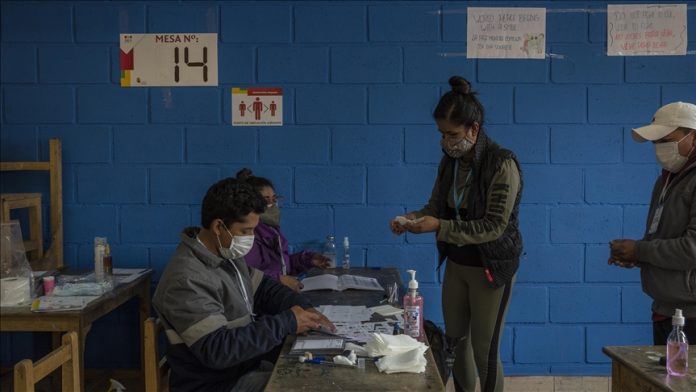The first round of Bolivia’s presidential election ended with an unexpected victory for outsider Rodrigo Paz Pereira, who represents the centrist Christian Democratic Party. He received more than 32% of the vote. Second place went to former head of state and member of the centre-right Freedom and Democracy alliance, Jorge Quiroga, with 26.94%.
Since neither of them managed to secure enough votes on Sunday, these politicians will face each other in a second round on October 19. This means that, for the first time since 2006, no representatives of the left will be running for Bolivia’s highest office.
Pereira’s victory in the first round came as a real surprise.
According to all opinion polls, he was predicted to finish no higher than fourth with around 8-9% of the vote. At the same time, the same polls gave clear leadership to businessman Samuel Doria Medina, who ultimately came third with just under 20% of the vote. The latter has already conceded defeat.
Pereira’s result is evidence that Bolivian society is tired of the traditional members of the political establishment and needs “fresh blood.” At the same time, the winner is not a newcomer to politics.
Pereira has previously held the posts of senator and mayor. In addition, his father, Jaime Paz Zamora, was president of Bolivia from 1989 to 1993. As for the representatives of the left, it would have taken a miracle for any of them to make it to the second round.
Senate President Andronico Rodríguez received about 8% of the vote, while the candidate from the ruling Movement for Socialism party, Carlos Eduardo del Carpio, secured the support of about 3.2% of voters. This sharp decline in popularity of the left was the result of both economic problems in the country and internal divisions.
Political crisis ahead of presidential elections
Bolivia is currently facing periodic fuel shortages and a currency shortage. The problem is compounded by high inflation, which has almost reached 17%. In addition, the conflict between the authorities and former President Evo Morales has had a negative impact on the left-wing electorate. The politician made numerous attempts to register his candidacy for the elections, despite a court ban.
Having failed to achieve his goal, the former head of state called on his supporters to participate in demonstrations and block roads throughout Bolivia. Such measures were rejected by many voters who sympathised with the Movement for Socialism.
At the same time, Morales refused to support any of the candidates and suggested that his supporters spoil their ballots. According to the local Central Election Commission, about 20% of the ballots were declared invalid.
Thus, nearly 20 years of dominance by the Movement for Socialism ended in electoral defeat. Now, in the second round, Bolivian citizens will have to choose a new path for their country.
